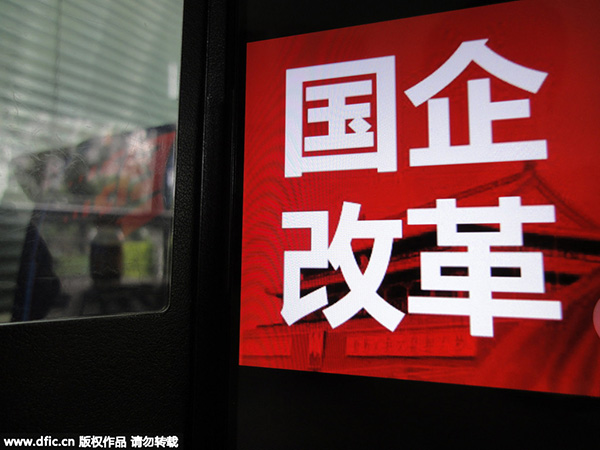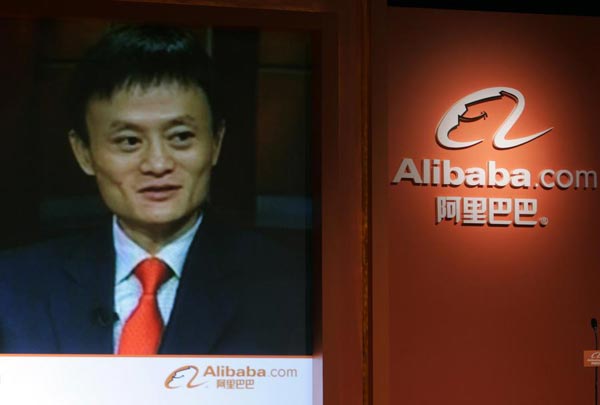Shining lights brighten future of SOEs — China Daily Commentary
–
Shining lights brighten future of SOEs
By PETER FUHRMAN (China Daily) Updated: 2015-10-23 07:29
 |
While the need for SOE reform is great and too many SOEs still fight to maintain the troubled status quo, there are also some Chinese SOEs leading by example. |
As China’s leadership prepares its 13th Five-Year Plan (2016-20), it confronts multiple economic challenges, reform of State-owned enterprises being one of them.

SOEs account for at least 30 percent of China’s total GDP. Some estimates put the share as high as 45 percent. But there are two worrying signs of the worsening situation for China’s SOEs: Their profits are dropping and indebtedness is rising sharply. According to the Ministry of Finance on Wednesday, the profits of the SOEs from January to August decreased by 8.2 percent year-on-year, while the total debt of SOEs from January to September has surpassed 77 trillion yuan, a 20 percent year-on-year increase.
Last month, the government introduced its guidelines for the next stage of SOE reform, including more outside capital. The guidelines are in the right direction, but, there is also some enormous potential within the SOE sector in China that, if unleashed, would also help contribute to the overall turnaround.
There are centers of research excellence, especially in applied engineering, on par with the best in the US and Europe. One example is the China Iron and Steel Research Institute Group in Beijing. It employs 2,000 staff with doctorates along with other experienced research scientists. Every visit, I leave impressed not only by the commitment of the large staff, but also the level of the research institute’s globally-important innovation.
If there is an area that needs improvingï¼one not uncommon for SOE research institutesï¼it is in how to commercialize their many technologies and how to initiate and structure profitable licensing deals, both with other SOEs in China and global steel and new materials companies. The Institute, based in Beijing’s Haidian district, is making great strides, but, a greater focus as well as a stronger push from the government to get technologies out of the lab and into factories would be helpful.
SOEs too often focus excessively on increasing gross output rather than on pleasing customers and accumulating profits. One positive mold-breaker here is Yangzhou’s AVIC Baosheng Group, which makes steel and copper cable. Though operating in a brutally-competitive market with lots of competitors, Baosheng holds its own. Also in Yangzhou are two examples of how SOEs can take a valuable traditional brand name and rejuvenate it. Restaurant chain Yechun Teahouse and cosmetic manufacturer Xiefuchun have both been around since the Qing Dynasty (1644-1911) and became SOEs in the 1950s.
Yechun is now opening beautiful restaurants both inside and outside China that maintain consistently high quality. Xiefuchun is more of a jewel-in-the-making, with great all-natural products in tune with buying trends in China and abroad. However, Xiefuchun is not as good as it could be on branding, packaging and retail, areas where SOEs often tend to do poorly. Xiefuchun, against all commercial logic, is now stuck inside a large SOE chemicals holding company.
Meanwhile, China Huadian Corporation stands out for its success doing something few SOEs have masteredï¼investing to build from the ground up and then running profitable large-scale projects outside China. All SOEs know about the central government’s “Go Global” policy. Huadian is getting it right and so has much to teach other globally-ambitious SOEs.
Then there’s my choice for most exceptional high-tech SOE in China, Sichuan Aerospace Tuoxin Basalt Industrial. Though little known, it could be a model for how SOEs might develop in the future. Based in Chengdu, 90 percent of the company is owned by the giant centrally-managed SOE, China Aerospace Group. Tuoxin internally developed a revolutionary process for using ordinary quarried stone to produce a lightweight waterproof, heat-resistant material with broad applications in everything from auto parts to wind-energy. It is on track to become a billion-dollar company within the next five years. Tuoxin suggests what more SOEs could be capable of.
But to get to where it is, Tuoxin needed an owner with long-term vision and patient capital, as well as a senior management team that wants to break out of the cocoon of supplying mainly other SOEs by partnering extensively with China’s private sector companies.
While the need for SOE reform is great and too many SOEs still fight to maintain the troubled status quo, there are also some Chinese SOEs leading by example. They are blazing a path toward a more productive and profitable SOE sector all Chinese can take pride in.
The author is chairman and chief executive officer of China First Capital
–
http://www.chinadaily.com.cn/opinion/2015-10/23/content_22260934.htm
–

